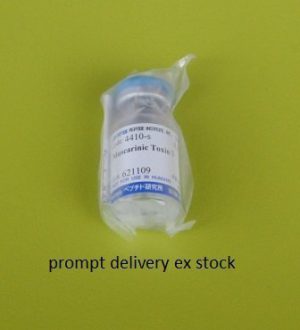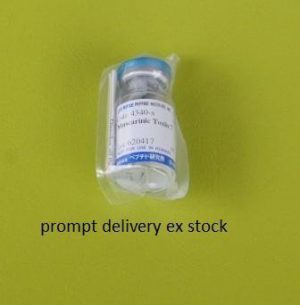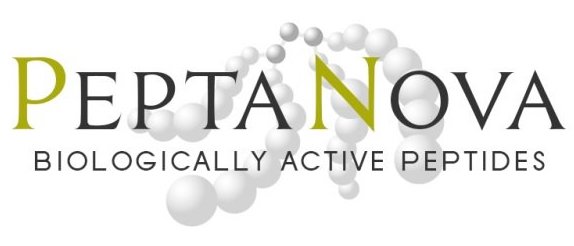Muscarinic Toxin
Muscarinic Toxin | Muscarinic acetylcholine receptor (M4) specific ligand Muscarinic acetylcholine receptors have been classified into five subtypes (M1 – M5). These receptors are involved in various biological functions, which can be studied using specific ligands to each receptor subtype, including the peptidic “muscarinic toxins” (abbreviated as MT in this short description). Muscarinic toxin peptides are originally isolated from the venom of the mamba species and are composed of 65 to 66 amino acid residues with four intramolecular disulfide linkages [Life Sci., 68, 2541 (2001), Pharmacol. Ther., 85, 87 (2000)]. Recent work has indicated that the activation of muscarinic acetylcholine receptors can regulate the metabolism of β-amyloid precursor protein, and that muscarinic agonists led to a reduction of amyloid-β-protein production [Brain Res., 905, 220 (2001), J. Protein Folding Disord., 10, 1 (2003)]. Synthetic Muscarinic Toxin 7 has been used to study M1 receptor’s role in amyloid β-protein-induced signaling [J. Biol. Chem., 278, 17546 (2003)]. We have now successfully synthesized two additional muscarinic toxins bearing different receptor subtype selectivity.PeptaNova offers presently four different Muscarinic Toxin peptides for research. All offered muscarinic toxines are chemical sythesized peptides and not isolated from biological sources.
Showing all 4 results
-

Muscarinic Toxin α
230,00 € excl. 19% VATMuscarinic Toxin α
SKU: 4424-s Categories: Ion Channel Blocker & Toxins, Muscarinic Toxin230,00 € excl. 19% VAT -

Muscarinic Toxin 1
230,00 € excl. 19% VATMuscarinic Toxin 1
SKU: 4341-s Categories: Ion Channel Blocker & Toxins, Muscarinic Toxin230,00 € excl. 19% VAT -

Muscarinic Toxin 3
230,00 € excl. 19% VATMuscarinic Toxin 3
SKU: 4410-s Categories: Ion Channel Blocker & Toxins, Muscarinic Toxin Tag: Muscarinic Acetylcholine Receptor-4230,00 € excl. 19% VAT -

Muscarinic Toxin 7
230,00 € excl. 19% VAT
